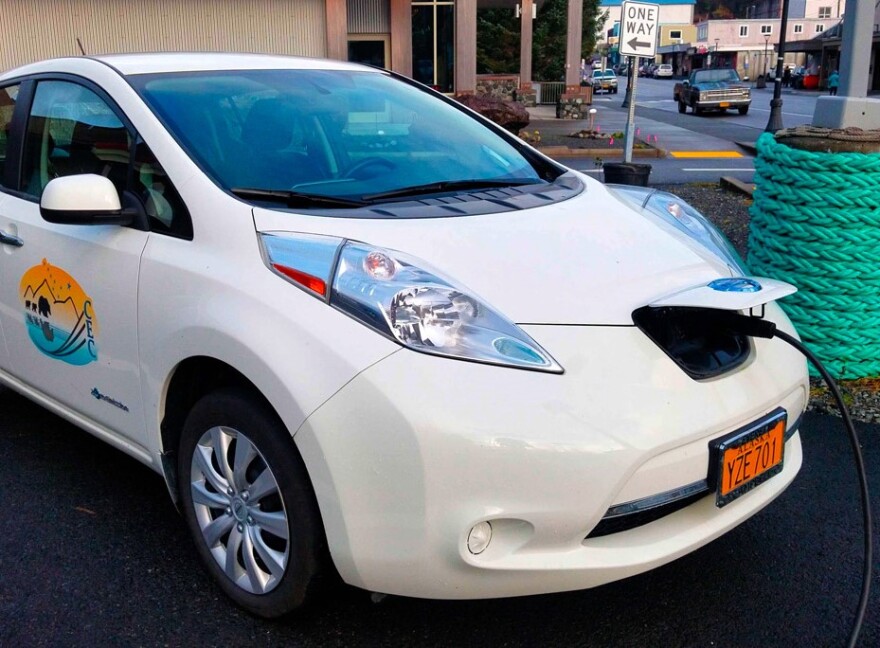There are about 500 electric vehicles in Alaska. The landscape is improving for running electric cars cheaply and for long distances. But there are still barriers to overcome. Fairbanks scientists are inviting manufacturers, utility regulators, transportation analysts and just general motorheads to a two-day virtual workshop. The workshop is 9:00 a.m. to 1:00 p.m. on Tuesday, June 16 and Wednesday, June 17.
The workshop is free and online. Its hosted by the Alaska Center for Energy and Power and the United States Arctic Research Commission. Tim Leach says the workshop is to start a conversation to overcome barriers for electric cars.
“An this is an excellent time to have this conversation, both on the policy elements and the technical elements as well, because we are kind of at the beginning stages of our journey around the electrification road.”
Leach says a lot of work has been done in Juneau, where more than 65% of Alaska’s electric vehicles are registered. But it is the start of the conversation for Alaska’s Interior, where the weather is colder, and owners charge their vehicles at home, because there’s not as much infrastructure like fast charging stations at convenience stores.
“You don’t have the access to roll your electric vehicle and plug in for half an hour to get your battery from fairly low to fairly high. What you would do at this point is plug in to that 110-volt outlet, that is our standard household current, for 24 hours or more.”
But as costs of acquiring and operating an electric vehicle in Alaska are coming down, the infrastructure to service them needs to overcome technical barriers. That’s why the University of Alaska Fairbanks’ Alaska Center for Energy and Power, or ACEP, is a co-host of the upcoming workshop. Erin Whitney is an ACEP project manager. She says the center strives to be objective and non-biased in advancing the science around energy projects.
“We are not an advocacy organization, but we do try to understand the technological and policy ramifications of energy developments and opportunities and projects in the state.”
The conference is two half-days, the first looks at policy and how organizations or government can increase the social, economic and environmental benefits from electric cars, and how to reduce costs to utilities and ratepayers. The agenda is filled with panels of experts who have – if you’ll pardon the cliche – been down this road before.
“We are bringing in some of those Outside experts from the Regulatory Assistance Project, Tesla, and from Rocky Mountain Institute, to help us understand what are the broad trends in the policy environment out there from some of the jurisdictions who have been successful in moving the needle on electric vehicle adoption.”
The second day is more of a technical how-to on cold weather and charging equipment for individuals and fleets like busses and trucks. The conference is free but registration is required for the on-line access. Information is on the ACEP website: acep.uaf.edu.


